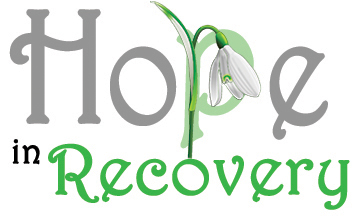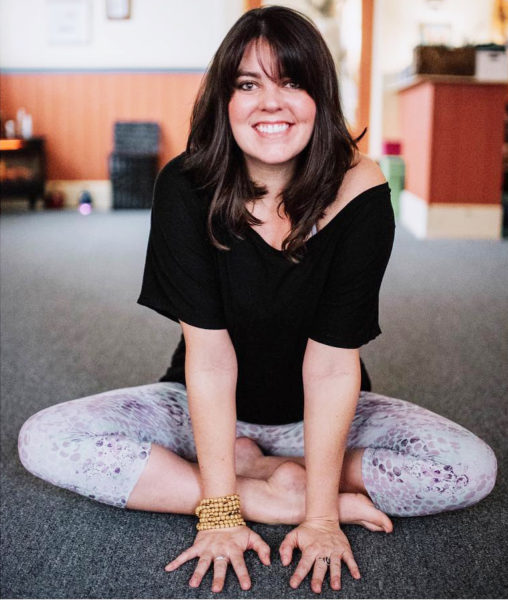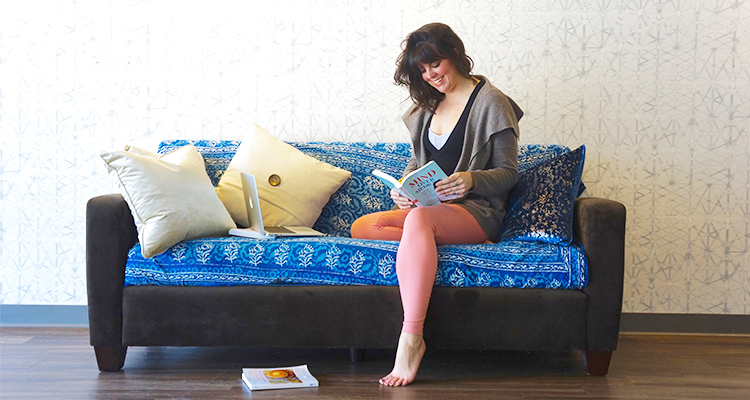Autoimmune disease is on the rise in our country. In decades past, the term “autoimmune” wasn’t widely known, but today, 50 million Americans live with an autoimmune disease. That number is climbing, and women are more likely than men to develop autoimmune problems.
Normally, the body’s immune system is on alert and ready to defend against viruses and bacteria. In the case of autoimmune disease, though, it gets confused, and for unknown reasons, begins to attack healthy cells. Essentially, the body wages war on itself.
The list of diseases is long, but some common conditions are lupus, rheumatoid arthritis, inflammatory bowel disease, Type 1 diabetes, multiple sclerosis and psoriasis. All told, there are more than 100 autoimmune diseases. Some affect one organ, while others attack the entire body. Each disease manifests differently, but common symptoms are fatigue, widespread pain, inflammation and brain fog.
 Autoimmune diseases may run in families. While it’s not a given that you’ll suffer from Hashimoto’s thyroiditis or Sjögren’s syndrome if your mother did, you’re more likely to develop it. Researchers believe that the rise in diagnoses may be due to environmental factors like exposure to chemicals and infections. Additionally, it’s suspected that our “western” diet (high fat, high sugar, processed foods) is linked to inflammation, and this may set off an immune response, though the link has not been proven. Many individuals report the onset of symptoms during or after a period of high stress or trauma, and once the disease is present, it’s there to stay. Life with autoimmune symptoms becomes a question of management.
Autoimmune diseases may run in families. While it’s not a given that you’ll suffer from Hashimoto’s thyroiditis or Sjögren’s syndrome if your mother did, you’re more likely to develop it. Researchers believe that the rise in diagnoses may be due to environmental factors like exposure to chemicals and infections. Additionally, it’s suspected that our “western” diet (high fat, high sugar, processed foods) is linked to inflammation, and this may set off an immune response, though the link has not been proven. Many individuals report the onset of symptoms during or after a period of high stress or trauma, and once the disease is present, it’s there to stay. Life with autoimmune symptoms becomes a question of management.
In addition to pharmaceuticals, lifestyle changes are important. Stress can lead to a flare-up of symptoms. Moreover, many autoimmune sufferers find their diet affects how they feel. Gluten may be a problem, as may dairy.
The autoimmune world is a vast web of questions, and while doctors are supposed to help patients through this maze, many sufferers find they feel incredibly alone. As there is no cure for autoimmune disease, doctors can only treat symptoms, and can only manage the parts of the body they specialize in. Many patients see multiple doctors. Treatment is expensive and can feel as though you’re going in circles or nowhere at all. The rheumatologist may not communicate with the gastroenterologist. The endocrinologist may ignore the notes from the family doctor. Prescribed medicines may have unpleasant side effects. In the end, people with autoimmune problems often feel frustrated, helpless and hopeless.
Laura Hitchman of Wheeling knows these feelings all too well. A yoga teacher and life coach, she recently returned home to Wheeling after many years living in South Carolina, and she’ll soon be launching a support program, The AI Sisterhood 6 Part Series. She struggled for many years with her own autoimmune issues.

Hitchman had digestive troubles her whole life. She suffered from chronic inflammation and, in 2013, was diagnosed with ulcerative colitis. She believes her lifestyle — poor sleep, dietary choices and alcohol consumption — contributed to the inflammation. She was sick all the time, and the medications prescribed to her made her feel worse. At first, she tried to treat her inflammation on her own. She made her own goat yogurt and consumed mostly bone broth. Her gut felt better on this restrictive diet, but reintroducing food caused an immediate flare-up.
Stress, too, played a big part in her health decline.
“I was in a really toxic relationship,” she said, “and I had a job where I was on call basically 24 hours a day, seven days a week. I was in that position for six years. I was a concierge and had a lot of pressure on my shoulders all the time.”
Hitchman realized stress levels contributed to her physical health decline as much as her diet but found it difficult to break free of her job and her relationship.
“My stress was through the roof,” she said. Fortunately, she found support in the women around her. Several yoga teachers and a physical therapist helped Hitchman to get her feet on the ground. The latter was particularly insistent that Hitchman communicate clearly with her doctor.
“She totally empowered me to take my health into my own hands because at the time I didn’t know how to talk to these doctors. I didn’t know what to tell them. I didn’t know the terminology. I didn’t know what kind of tests I needed. So, she really helped me with that.” Hitchman took a six-month leave of absence from work.
“I just couldn’t do it anymore,” she said of her job. “I hired a life coach, and she helped me a lot. She helped me basically, you know, just get my priorities straight. Figure out my health to a point where at least I was showing up to my doctor’s appointments and seeking care.”
When she felt better, Hitchman returned to her job and to the relationship. Predictably, the stress returned, and a new autoimmune condition appeared.
“I now had psoriasis that was popping up. It started with skin rashes on my hands. I couldn’t work. I was having a hard time typing. We were looking into getting me some software so I could speak to type, and it was really affecting my ability to live even more than my digestive issues had.”
Finally, Hitchman quit her stressful job. Soon after, she decided to move back home to Wheeling to be with her family and have their emotional support. Though winter was difficult, she has finally returned to health.
“I think it was has a lot to do with the emotional support I feel here, not only from my family but the community. I finally have a GI doctor that supports how I want to treat my disease, which is through diet and nutrition and supplementation for inflammation, and I don’t want to take drugs. He was the first doctor that ever listened to me on that.” She’s confident that the positive environment, the emotional support, and the physical practice of yoga and other healing modalities have been vital to her success.
For the first time in five years, Hitchman feels good. She can get up in the morning without grogginess or brain fog. Keeping a regular bedtime, taking supplements and feeling supported by her doctors have dramatically improved her life. Now, she says, it’s time to pass on what she’s learned through her AI Sisterhood program. While each of the six sessions will look different, participants can expect an element of restorative yoga, meditation, journaling, group work and partner work. Hitchman also plans to explore other healing modalities such as Reiki, sound therapy, Ayurveda and acupressure.
“This program is so, so dear to my heart,” she said. “I hired my life coach two years ago, and I noticed at the end, like how much better my life was — the quality of life that I had on an emotional, mental, even physical level. She guided me, and she supported me, and she pushed me. No one else could have done it. Not my mom, not my best friend. So, I fell in love with [life coaching] then, and I decided to do the training. And I want to help women that are struggling with [autoimmune].”
While she says that Facebook and online groups can provide an element of camaraderie, Hitchman found they’re just as likely to trigger negative feelings. The face-to-face component of her program brings compassion to the forefront. Participants will support one another through struggles and successes. Her primary goal is to empower women to make choices about their health care and their lifestyle, no matter how long they’ve been on the autoimmune path.
“The AI Sisterhood is also about women,” she said. “You’ll share your experiences, your stories with one another, be there to support each other. The basis of this whole things is to help women be able to feel strong in their choices about their health care at times in their life when they feel so lost and have no clue where to turn.”
Participants with limited mobility can still participate in the program. Many yoga poses have modifications and can be practiced in a chair. Those who want to skip the yoga can do so while still reaping the benefits of the supportive environment. Additionally, participants will also receive a free one-hour life coaching call. Hitchman offers three- and six-month coaching programs as well.
Laura Hitchman’s autoimmune journey hasn’t been easy, but she’s happy to find herself in a peaceful, uplifting place. Finally, she feels in control of her own health and looks forward to sharing that with others.
“We need to be able to do this for ourselves,” she said. “I think that, especially when you’re dealing with disease, chronic illness, it’s really important to have human connection.”
For more information, visit www.wheelingyoga.com or email Laura Hitchman at chicabootz@gmail.com. AI Sisterhood time and dates: 2-4:30 p.m. on June 17 and 24, July 8 and 22, Aug. 5 and 19.
Laura Jackson Roberts is a freelance writer in Wheeling, W.Va. She holds an MFA in Creative Writing from Chatham University and writes about nature and the environment. Her work has recently appeared in Brain, Child Magazine, Vandaleer, Animal, Matador Network, Defenestration, The Higgs Weldon and the Erma Bombeck humor site. Laura is the Northern Panhandle representative for West Virginia Writers, a blog editor for Literary Mama Magazine and a member of Ohio Valley Writers. She recently finished her first book of humor. Laura lives in Wheeling with her husband and their sons. Visit her online at www.laurajacksonroberts.com.


